INTERACTIVITY - MUSEUM - R&D
May 06, 2021Cultural inclusion and Covid: what’s the way forward?
One year after the start of the Covid-19 pandemic, L’École de design Nantes Atlantique and Tactile Studio, with the support of the French Ministry of Culture, put on a series of three webinars in April 2021 on the theme “Cultural inclusion and Covid: what’s the way forward?”.
The aim of these three meetings was to enable professionals to encourage each other in inclusive initiatives and to reflect together on the evolution of cultural facilitation.
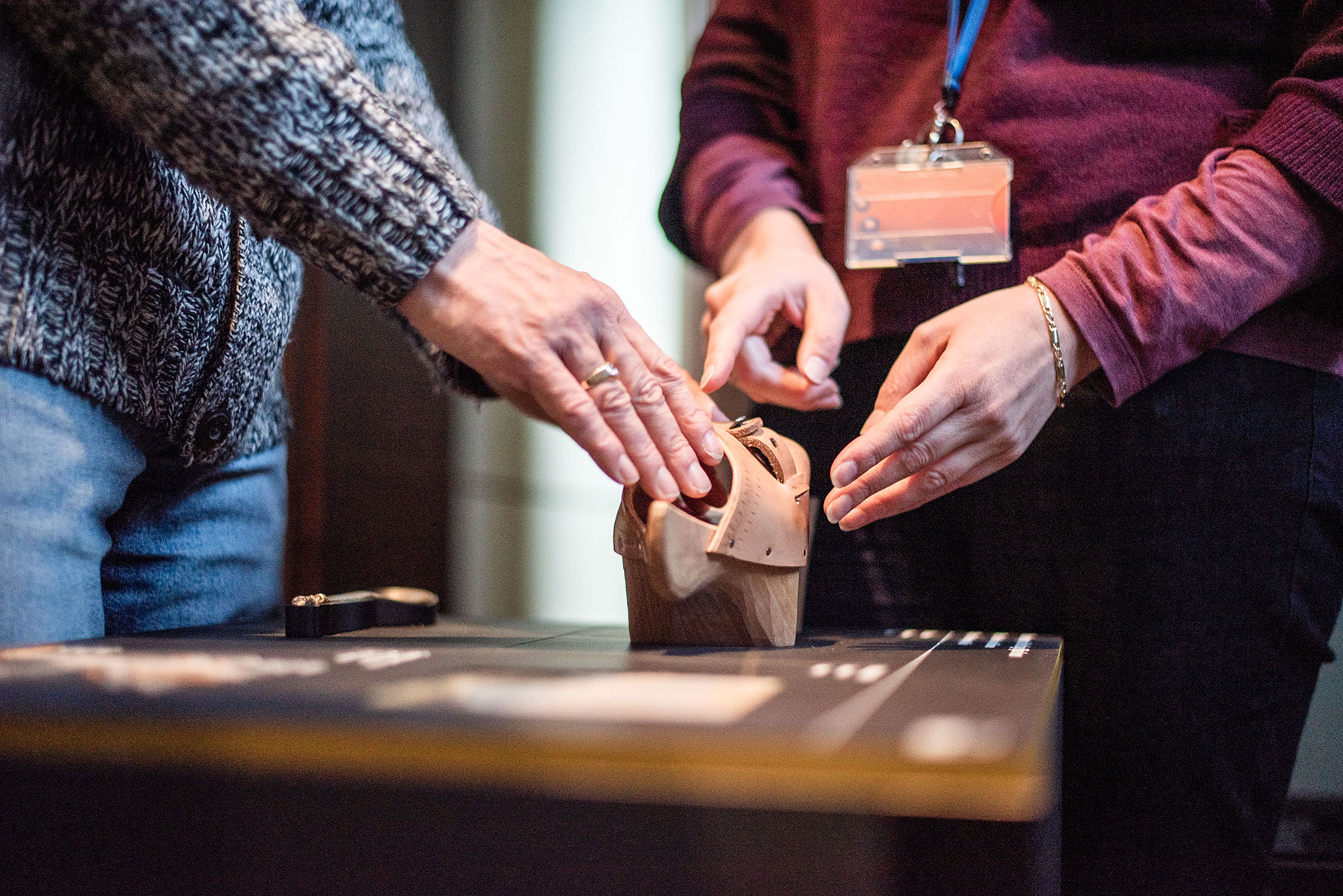
An even more inclusive and co-operative museum
In view of the exchanges between facilitation professionals, one year after the onset of the pandemic, the question isn’t so much knowing how museums can still be inclusive (see the 2020 webinar), but how to be so by collaborating more with each other and with the public.
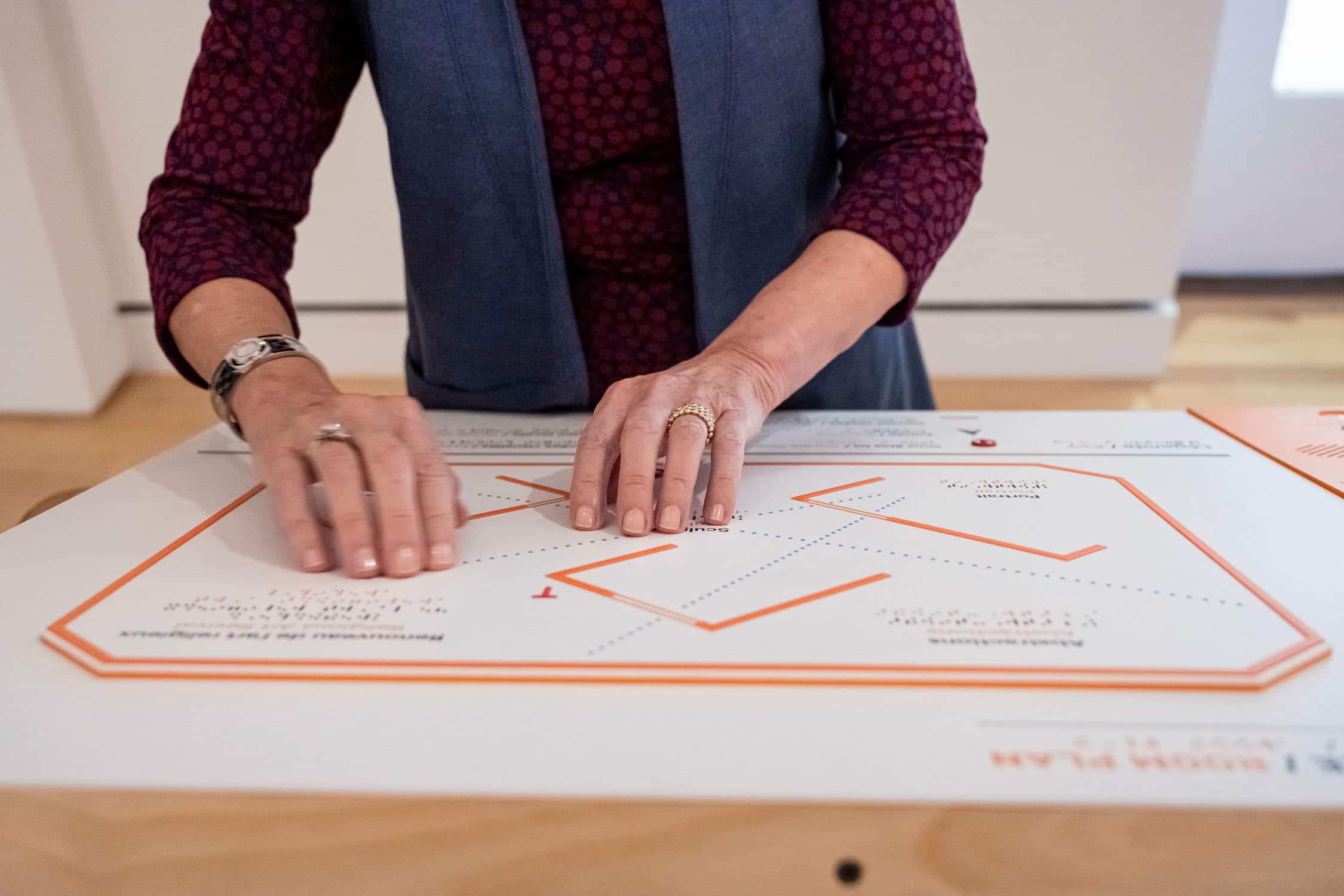
So the question of connection – the quality of the connection and the different ways of connecting – was at the heart of the discussions. The issues identified in the course of the discussion focussed on three areas:
1. Inclusive facilitation beyond the walls.
2. Connection with the public.
3. The digital offer (limits, complementaries).
All initiatives and questions shared during the three webinars have been brought together in the form of a map.
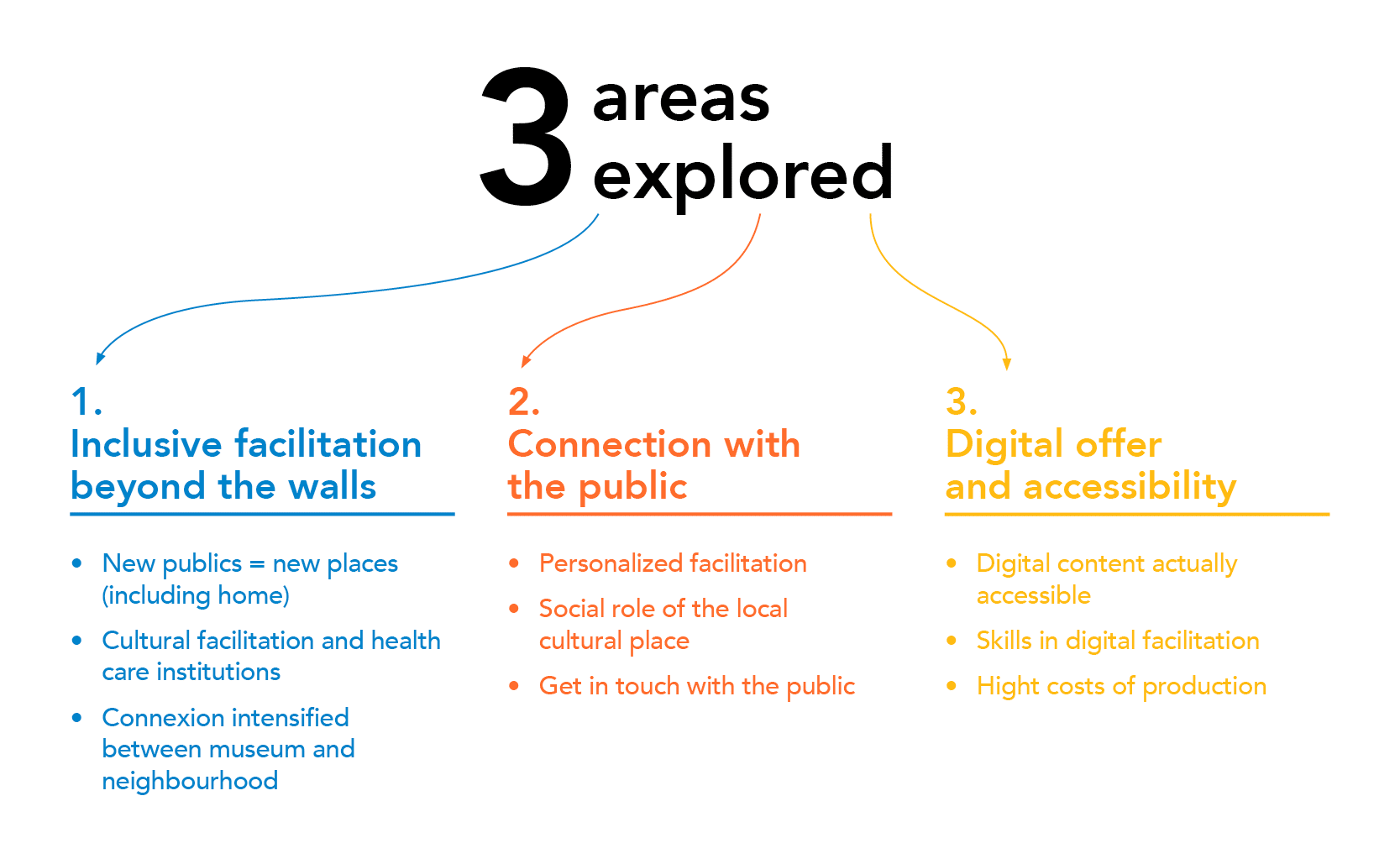
At the end of the three webinars, a strong wish was expressed to continue the dialogue
◉ A desire to maintain sharing between museums (94% of respondents),
◉ At a regular frequency of: once a month (48%); once a quarter (45%); several times a quarter (6%),
◉ With a duration of: 1 hour (52%); half a day (23%); depending on the topic (23%).
The format of future meetings is therefore being reviewed to offer you the most interesting options possible.
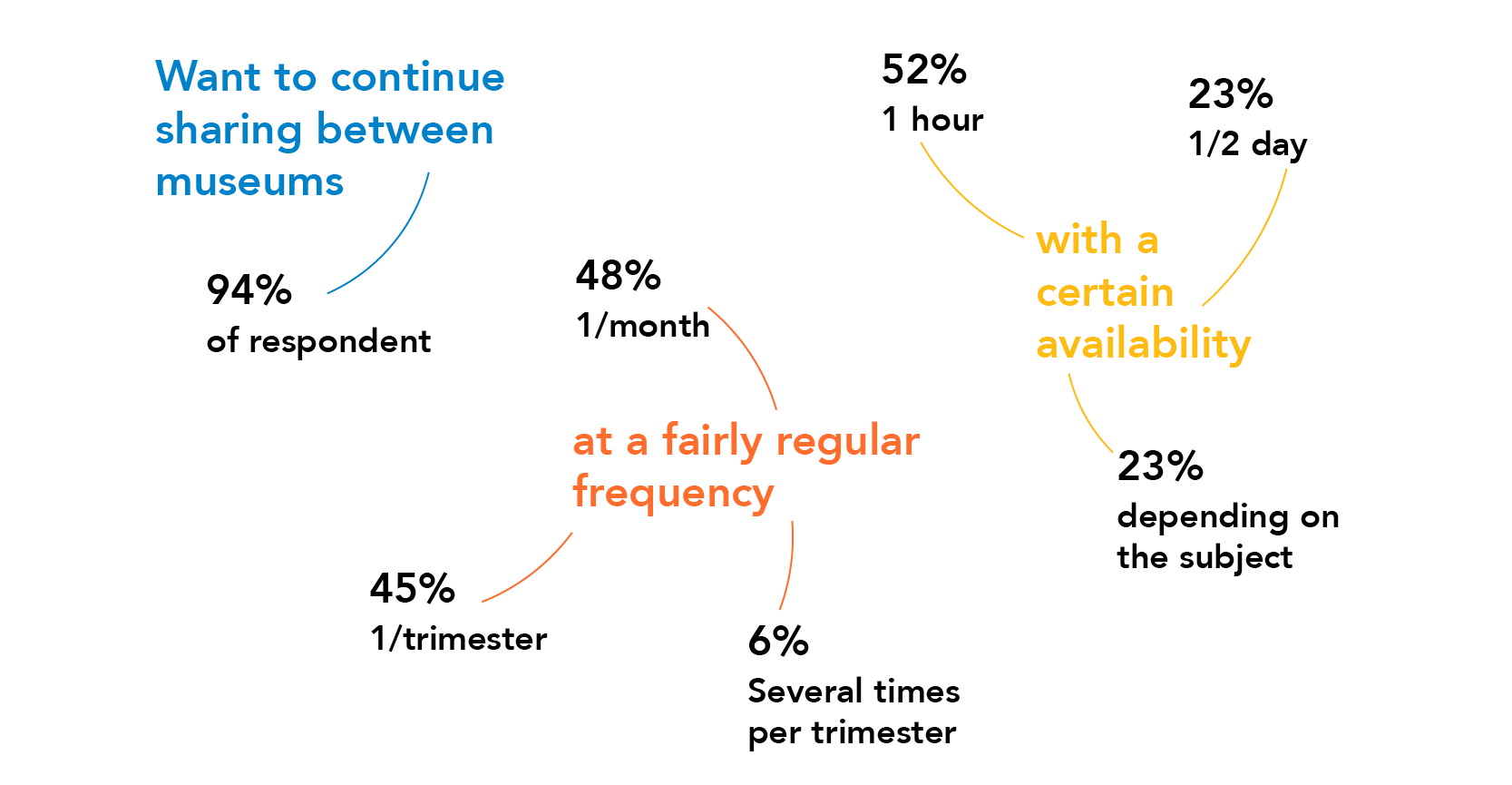
Some figures
◉ 300 participants (facilitators, accessibility managers, researchers,…), 50% present for all three events.
◉ 13 nationalities represented: Austria, Belgium, Canada, Chile, England, France, Germany, India, Italy, Philippines, Portugal, Spain, United States.
◉ 7 speakers: Le Château des Ducs de Bretagne (France); The Metropolitan Museum of Art (USA); Jones Beach Energy and Nature Center (USA); Le Musée des Beaux-Arts de Lyon (France); Le Musée des civilisations de l’Europe et de la Méditerranée (France); Le Musée national des beaux-arts du Québec (Canada); Universcience (France).
◉ A wall of ideas and question with 53 contributions.
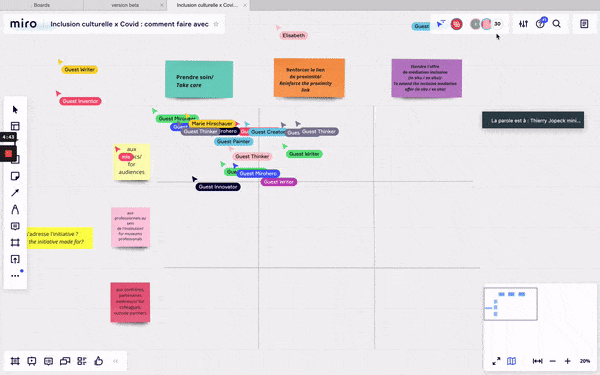
A big thank you to everyone
◉ Thanks to the museums for their high-quality inclusive initiatives.
◉ Thanks to the 300 international participants for their contributions (students, academics, cultural institutions, local authorities, culture sector service providers).
◉ Thanks to the French Ministry of Culture for its trust and support.

Bonus track: the initiatives shared by the contributors
◉ An accessimeter enabling self-evaluation of the level of difficulty in understanding online scientific content.
Universcience, France – Contact: Geraldine.DELAFORGE@universcience.fr
◉ Cultural facilitation beyond the walls (in hospitals, elderly care homes, museums) in collaboration with scenographers.
Musée des Beaux Arts de Lyon, France – Contact: florence.manin@mairie-lyon.fr
◉ A sensory map to facilitate access to the exhibition, especially for visitors with autistic disorders.
Château des Ducs de Bretagne, France – Contact: laurence.dhaene@chateaunantes.fr
◉ Training in sign language for cultural site personnel during lockdown.
Universcience, France – Contact: Geraldine.DELAFORGE@universcience.fr
◉ Visit times reserved exclusively for vulnerable groups with possible outside creative workshops.
Musée National des Beaux-Arts du Québec, Canada – Contact: Kasia.Basta@mnbaq.org
◉ A cultural learning pack delivered to your home to discover the collections of the MET based on everyday themes: The Met Art Box.
The Metropolitan Museum of Art, NYC, USA – Contact: marieclapot@gmail.com
◉ Destination MUCEM, a shuttle bus to enable museum visits for people living in economically and socially deprived areas.
MUCEM, France – Contact: manuela.joguet@mucem.org
◉ An audio and sensory trail to discover the Jones Beach Energy and Nature Center.
Jones Beach Nature and Energy Nature Center, NYC, USA – Contact: Jeanne.Haffner@parks.ny.gov
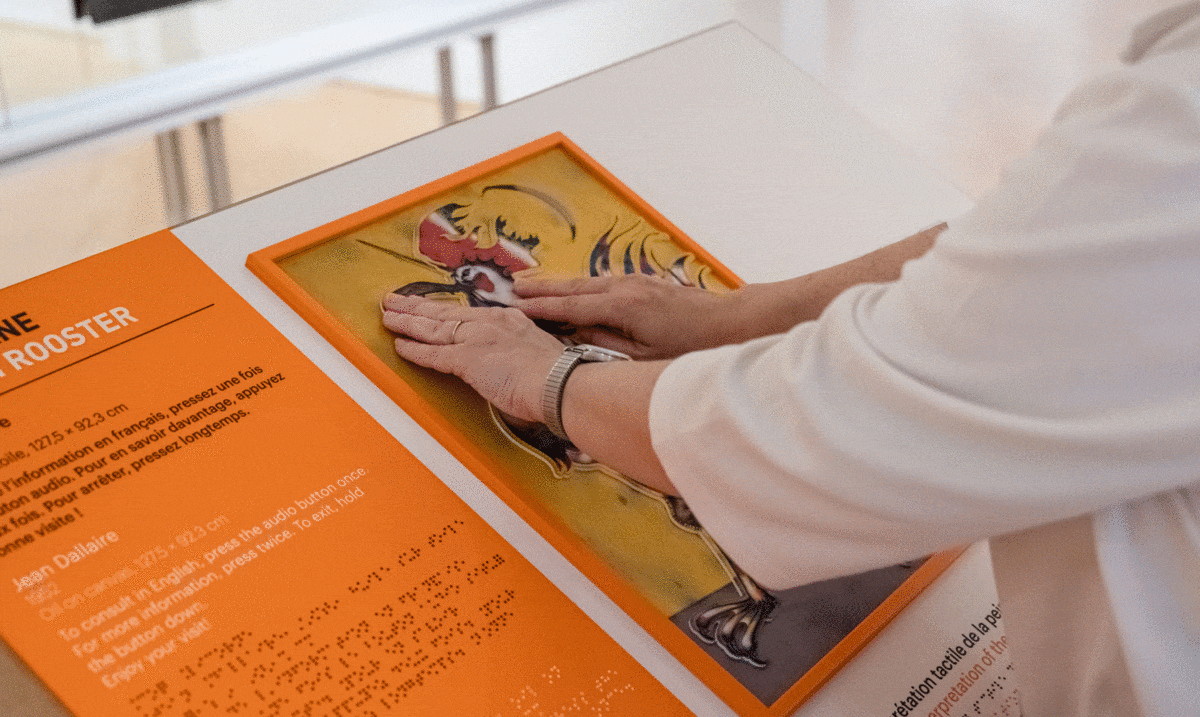
(Re-)watch the webinars
◉ Thursday 1 April – Initiatives from BA Lyon, MUCEM and MNBAQ.
◉ Thursday 8 April – Initiatives from Universcience and Jones Beach Energy & Nature Center.
◉ Thursday 15 April – Initiatives from Château des Ducs de Bretagne and The MET.
Organisational contacts
◉ Tactile Studio – communication@groupetactile.com
◉ L’École de design Nantes Atlantique – f.orsoni@lecolededesign.com

Sorry, the comment form is closed at this time.